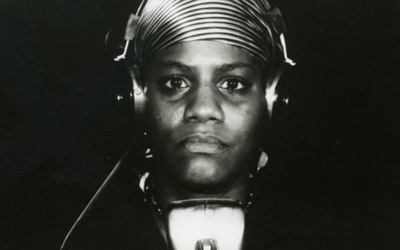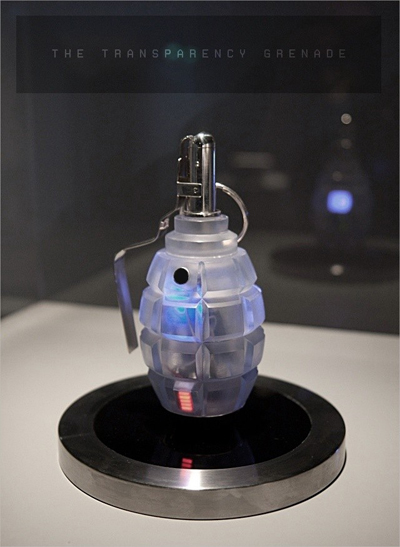A past performance of System Introspection by Nicolas Maigret, who will be presenting at Openhere at Science Gallery in Dublin
A four-day festival called OpenHere will be kicking off at Science Gallery in Dublin tomorrow to explore the digital commons, plus there will be free workshops covering issues such as openness on the internet and the social, technological and cultural implications of sharing information online.
The festival, which will run from tomorrow, 28 June, until 1 July, is collaboration between the CTVR telecommunications research centre at Trinity College Dublin and the Dublin Art and Technology Association.
Artist and technologist Ralph Borland, one of the presenters at OpenHere, said that the idea of the festival is to bring a mix of critical theorists, engineers, artists and designers together to share their insights on the social and legal implications that have emerged over the past two decades as a result of the sharing of information in the online domain.
He said that the talks and presentations will hone in on areas such as open source software and how proprietary networks such as Facebook and Google are using our data.

Scene from Born in Flames, the 1983 documentary-style feminist science fiction film by Lizzie Borden
After the festival opening at 5.30pm in Science Gallery tomorrow, there will be a screening of the 1983 science fiction film Born in Flames at 6.30pm. Borland said the film will provoke a narrative around networks and social media.
“We will also have the British politician Laurence Kay who leads the Pirate Party in the UK who will be speaking about the future of networks on Saturday.
“Some of the debate will be around coming up with new models around copyright and areas such as social media,” said Borland.
Other topics that will be up for discussion during the festival will include next-generation networks, net-art, digital policy and the political economy of infrastructure.
Borland said the events should appeal to both a techie crowd, as well as artists and anyone who is interested in leaning more about the sharing of data on the web, and its implications.
Tomorrow, for instance, people can take part in a workshop to create electronic ink protest posters. Borland said people will be able to broadcast message via the sonic posters at the end of the workshop.

The Transparency Grenade
Julian Oliver, who has been running a ‘Networkshop’ at Science Gallery this week during Hack the City, will also be speaking during the festival. Oliver has come up with a Transparency Grenade that’s equipped with a tiny computer, microphone and powerful wireless antenna, as shown here.
The idea of the grenade is that when you pull the pin, it will capture all of the digital information around it such as network traffic and audio. The grenade will then send that information back to Oliver’s computer where he can decode it.
The aim of the grenade is to raise questions around openness on the internet and the information that can now be captured in the digital context.
While all of the events and workshops will be free, Borland is advising people to book with OpenHere in advance.
Also join Ireland’s digital leaders who will gather at The Digital Ireland Forum to discuss the opportunity for Ireland to become a global centre for the creation and management of the digital content and services today’s connected consumer demands.